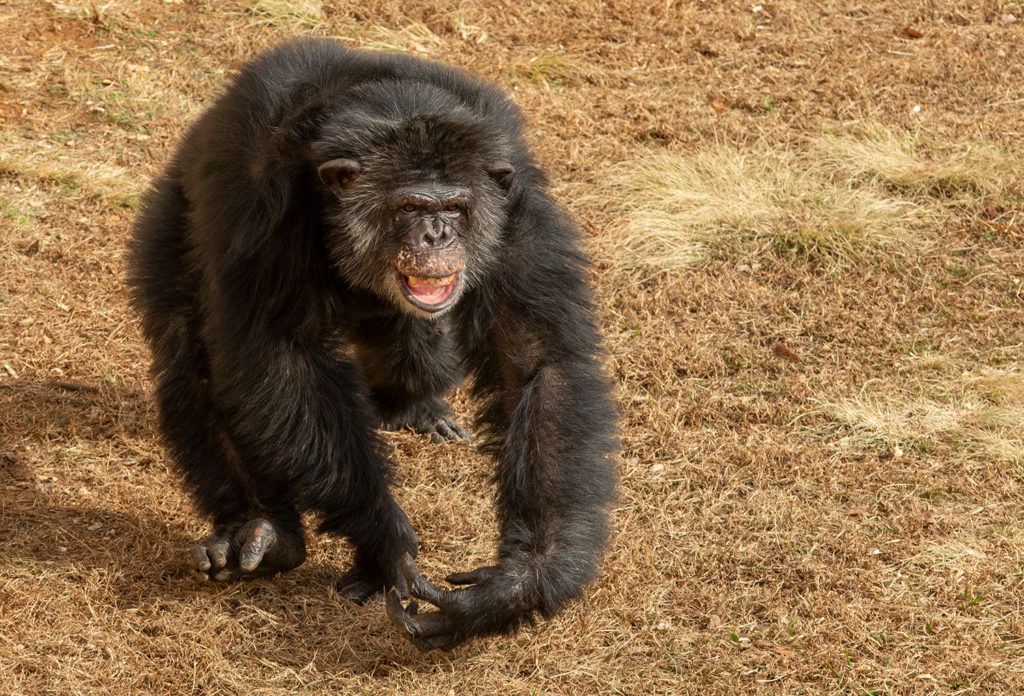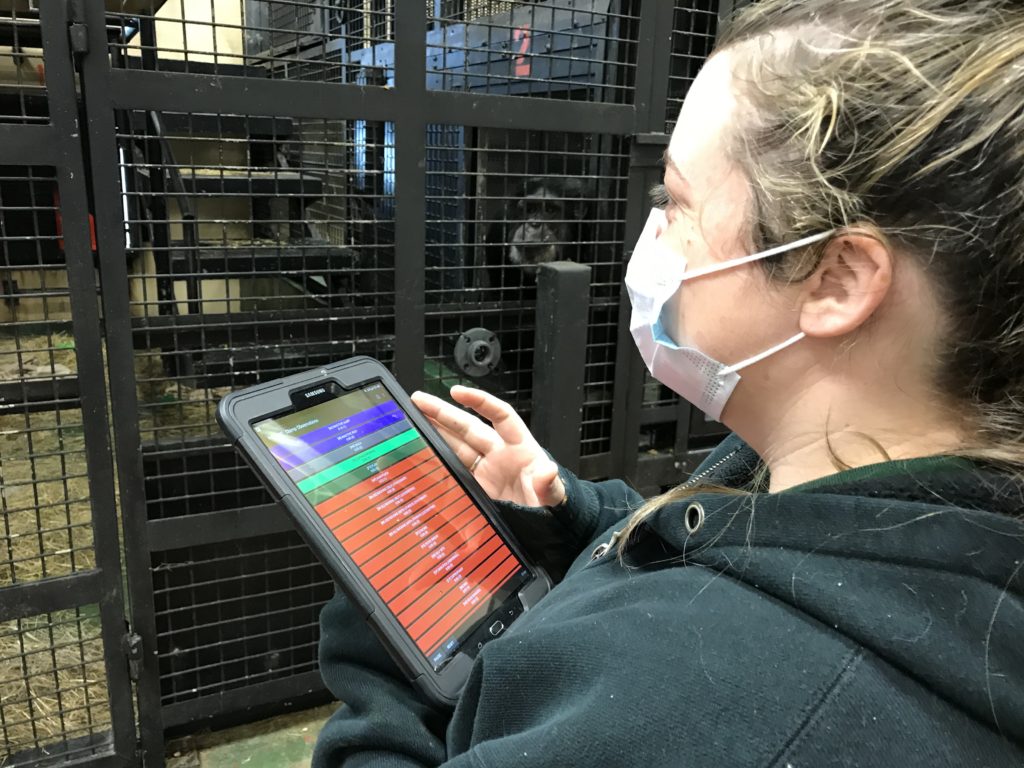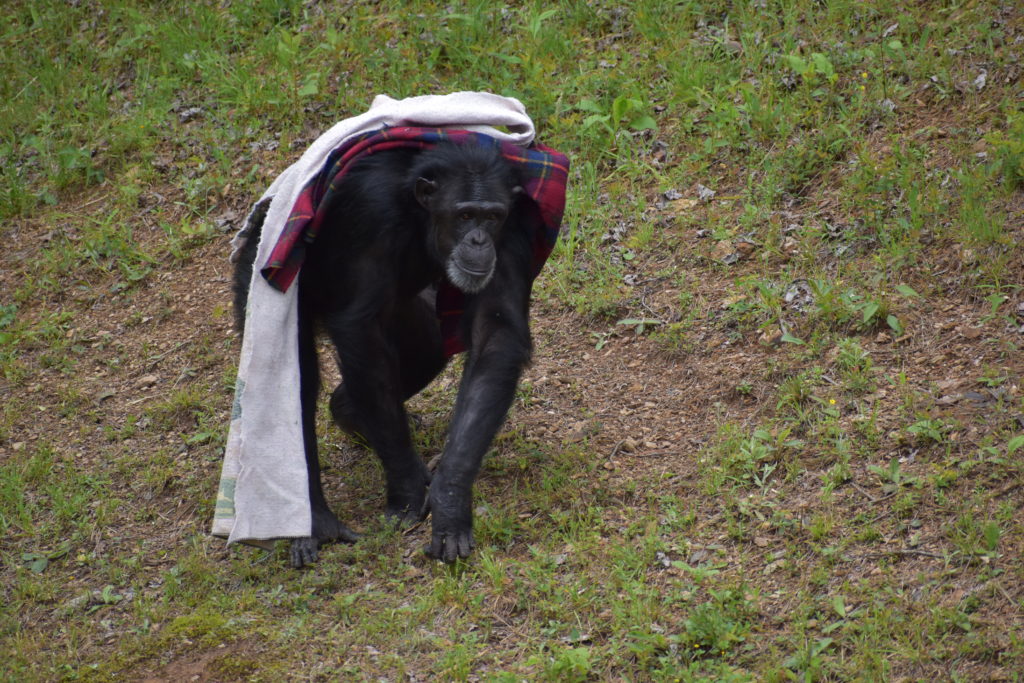
Abnormal Behavior in Chimpanzees

By Kayla Adgate
Is anyone normal?
What is the best way to gauge a chimp’s wellbeing? They can’t tell us. We shouldn’t guess. So, how do we do it?
One way sanctuaries and zoos gauge a chimp’s emotional and physical well-being is to look for signs of abnormal behavior. Abnormal or atypical behaviors are scientific terms that describe behaviors that are often indicative of stress.
Common abnormal behaviors include: rocking, excessive grooming or “plucking” of oneself or others, coprophagy, (or the eating or smearing of one’s fecal matter) and the regurgitation and re-ingestion of one’s food (R&R). Dr. Steve Ross of the Lester E. Fisher Center for the Study and Conservation of Apes explains that “one important criterion for defining atypical behavior is to ask if we see it performed by wild animals in the same ways or the same frequency.”

If a caretaker observes a given behavior in a natural setting, there is probably little cause for concern. According to Dr. Ross, one reason chimps exhibit atypical behaviors is because they are either attempting to fulfill a behavioral need that their environment in captivity cannot accommodate. Atypical behaviors may also reflect something that happened to them earlier in their lives. For example, chimps raised in captivity without their mothers often engage in self-soothing, rocking behaviors.
How often is too often?
Caretakers should also take into consideration the frequency of the behavior. For example, self-grooming is an important behavior; however, when done in excess, hair plucking can be problematic. Researchers have observed captive primates engaging in excessive plucking behavior, with captive bonobos exhibiting the highest plucking rate of ape species (Brand and Marchant 2018).
However, according to Dr. Ross, it is important to be cautious and not assume that a behavior is directly tied to excessive stress.
Some behaviors that may seem abnormal are not indicative of stress at all, but are the result of social learning. For example, while one might assume that coprophagy, or the eating or smearing of one’s fecal matter, may be indicative of stress, it is often simply a behavior that chimps replicate and pass on. If a mother chimp eats her own feces, then her offspring may simply copy her behavior.
Trial and Error

Due to this grey area of definitions, understanding if a chimp is indeed exhibiting abnormal behaviors is often intuitive, observational work of the caregivers. Body language is key.
According to Dr. Ross, “Some chimps may engage in behaviors that seem unusual, but it’s difficult to determine if they are tied to stress or not.” If a chimp’s behavior is particularly serious, the medical team determines whether or not anti-anxiety medication is necessary.
In other words, sometimes it takes a lot of trial and error, and a lot of observations, to determine if a chimp is happy, but it’s worth it!
You can learn more about behavior program here.

Kayla Adgate is a Spring 2021 Communications Intern.
